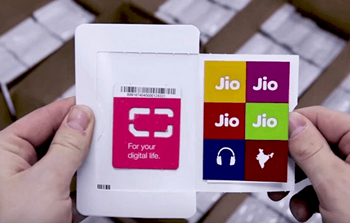Feb 20: Six persons were arrested on Friday by the police here for allegedly duping customers by selling them SIM cards of a prominent mobile services provider, which are available free of cost.
 The modus operandi of the accused was to collect more than one thumb impression of genuine customers and to use the data along with their Aadhaar card details to activate another SIM, which they would sell for anywhere between Rs. 100 and Rs. 1000 to others without asking for documents.
The modus operandi of the accused was to collect more than one thumb impression of genuine customers and to use the data along with their Aadhaar card details to activate another SIM, which they would sell for anywhere between Rs. 100 and Rs. 1000 to others without asking for documents.
The police have seized 346 Reliance Jio SIM cards, including 14 pre-activated SIMs, and four thumb impression machines, said Additional Superintendent of Police (ASP) Amrendra Singh.
"The accused used to collect more than one thumb impression of the customer on the impression machine and give him/her one free SIM. At the same time, they would get second SIM activated using the same person's thumb impression which they have taken deceptively," Singh added.
They used to sell the second SIM card to other person without seeking any documentation and thumb impression, for a charge.
The police said that investigations were underway to find out if the sold SIM cards were used for any criminal act.
"The role of local representatives of Reliance Jio is also being investigated," the officer said.
The accused are identified as Ram Hemnani (27), Neeraj Nandlal (23), Deep Badhwani (26), Sunil Chouhan (28), Ranjeet Singh Bhati (24) and Praveen Rathore (22).





Comments
Add new comment